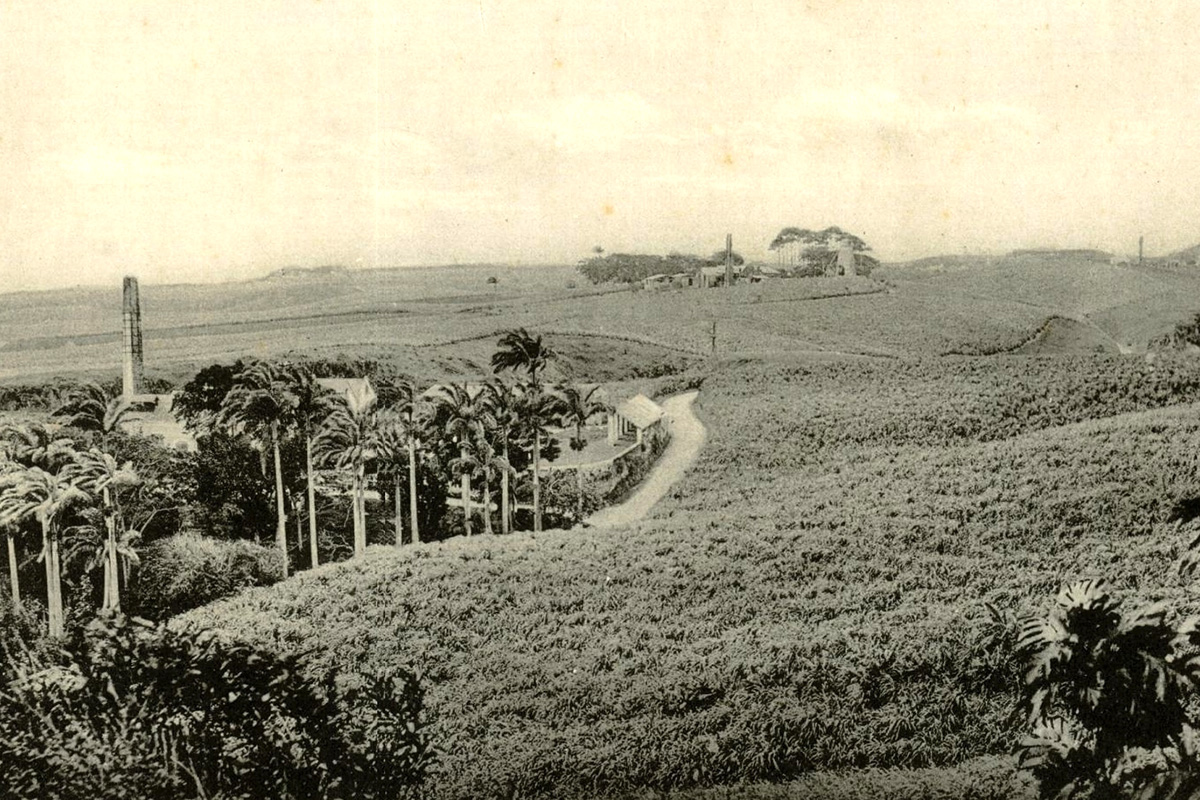Rum Heritage
Barbados is widely credited as the birthplace of rum. The first commercial sugar cane crop was planted in in Barbados 1640, but settlers had already been harvesting small crops to create a popular local beverage called 'Kill-Devil' an early ancestor of the modern-day spirit. Crude distillation methods resulted in a poor-quality product described as '...a hot, hellish, and terrible liquor', yet its popularity grew.
Over the next century, distillation practices significantly improved and Barbadian rum became renowned in both Europe and Colonial America. Alcohol played a large role in 17th and 18th century life; it was drunk during social occasions, used medicinally and served as a valuable trading commodity.

Sweet Prosperity
The first settlers arrived in Barbados in February 1627; within 10 years over 6,000 English settlers had arrived. Initial landholdings were primarily used for tobacco and cotton; between 1631 and 1637, an additional 37,770 acres of land were handed out. America had a stronghold on the tobacco market, so planters were desperately searching for another prosperous crop.

Unsettling Times
For several decades, Barbados enjoyed an economic boon; however natural disasters, political unrest, stringent English rule and an increased world supply of tropical products led to declining profits from 1661. It was during this time that John Yeamans and other Barbadians migrated to American Colony known as Carolina in search of greater and more secured prosperity.

Improved Spirits
It was during this time that the Nicholas Family sold the Plantation to Joseph Dottin, who gifted the property to his daughter, Christian, and her husband, Sir John Gay Alleyne, on their wedding day in October 1746. Sir John is credited with introducing both the production of molasses, a thick dark-brown by-product of sugar production used in baking, as well as rum, a spirit created by fermenting the molasses.

Slaves & Free Laborers
In the 17th and 18th centuries, Barbadian slaves were treated harshly; however growing agitation in England over the colonial practice led planters to improve their treatment. Slaves were provided with thatched roof huts, clothing and food allowances; working hours were reduced to daylight hours only with Sundays and holidays off. In 1805, Barbados amended its laws to classify the killing of a slave as murder, and in 1807, England passed the Abolition of the Slave Trade Act.

Steam Power
In the late 1800s, steam power was introduced to the local sugar industry; the steam mill could extract more juice from the sugar cane, increasing production by 10-15% over the traditional windmills. St. Nicholas Abbey installed a steam engine in 1890; built by Fletchers of Derby in London, it helped the plantation become one of the most successful on the island.










